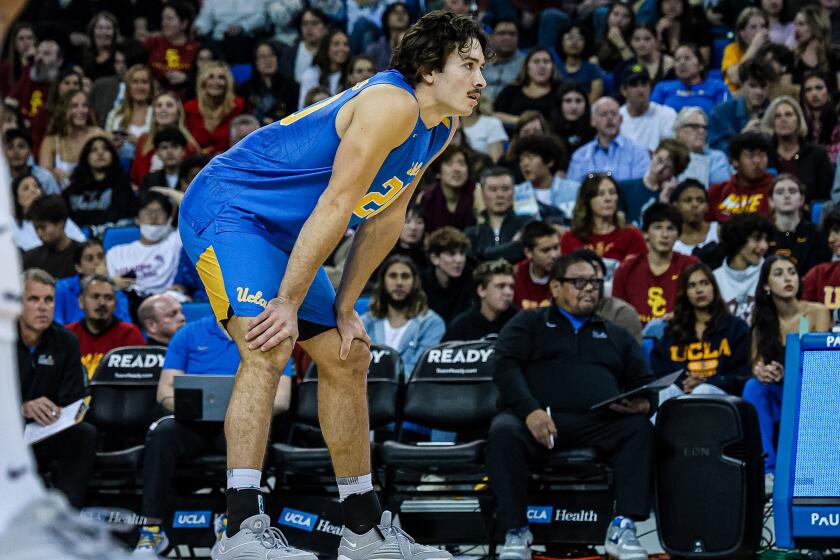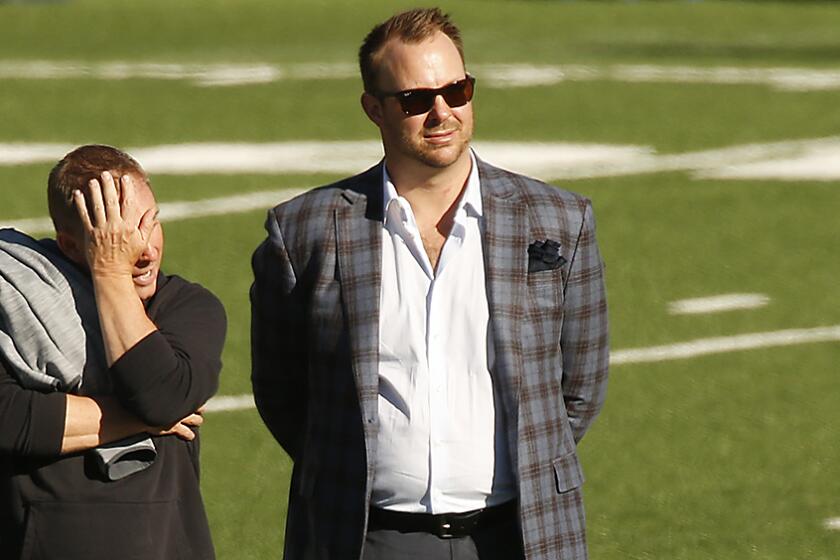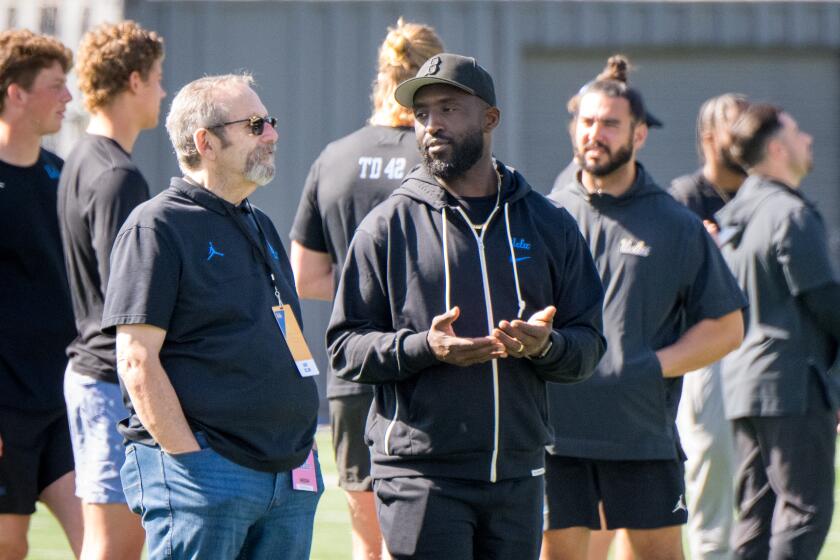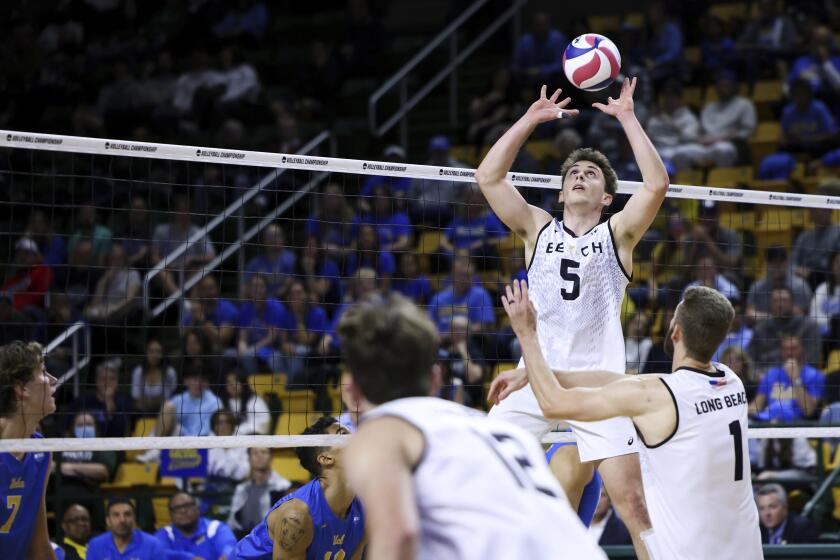In Future, He’d Rather Not Live in the Pass : UCLA: But Donahue doesn’t have much of a choice, because his team keeps falling behind and the running game isn’t working.
Terry Donahue has been called a conservative coach in the past, a label that he says is not necessarily accurate.
“I can’t even believe the things that have happened to me in the last year and a half,” Donahue said Monday, probably referring to the fact that UCLA has won only four of its last 14 games.
“But what I find most ironic of all is me defending the fact that we’re throwing 47 passes (in) a game. I can’t believe it.”
That’s the number of passes that quarterback Tommy Maddox attempted in a 38-15 loss to Michigan Saturday at Ann Arbor, Mich.
For three games, UCLA is averaging 35 passes a game. It’s Air Donahue, but not by choice.
“I’ve been painted as conservative and non-throwing, but someone said that during the decade of the 1980s we were the second-most efficient passing team in the United States,” Donahue said. The Bruins were forced to pass frequently against Oklahoma, Stanford and Michigan.
What Donahue wants is a balanced attack. But the running game hasn’t developed, partly because UCLA had to abandon it early while trying to overcome sizable leads by their opponents.
The latest Pacific 10 Conference statistics reveal that that USC and UCLA are ranked ninth and 10th in rushing offense, averaging only 82.7 and 72.3 yards, respectively.
Donahue can’t recall when the schools, dominant in the conference over the years, have ranked so low in those categories.
UCLA will play at Washington State Saturday night, and it would seem that passing would be the predominant theme. The Cougars and Bruins are ranked first and third, respectively, in conference passing statistics.
Even though Washington State ranks seventh in rushing in the conference, Donahue still regards the Cougars as more balanced.
He can’t say that about his own team, and the running game is an ongoing concern.
Donahue has seemingly found a productive fullback in Kevin Smith, who is averaging 5.5 yards a carry.
However, his tailbacks--Kevin Williams, Shawn Wills and Brian Brown--are averaging no more than three yards a carry.
They haven’t had many rushing opportunities, however, because of the emphasis on passing brought about by game circumstances.
Nonetheless, Donahue can’t understand why a tailback hasn’t emerged to take charge of the position.
He’s even toying with the idea of using reserve fullback Maury Toy as a tailback.
Williams is ostensibly UCLA’s No. 1 tailback, but he has been bothered by injuries and didn’t play against Michigan.
“Each of the tailbacks has some specific skills,” Donahue said. “The guy we’ve obviously tried to sit on and hatch is Kevin Williams, and it’s not happening for us yet. He’s the one we wanted to become dominant, the guy who has the size and speed. But sometimes you can’t wait forever.”
Donahue said Brown will be the starting tailback against Washington State, adding that the tailback did not play poorly against Michigan, but had few opportunities to carry the ball.
“Brian has quickness and he’s tough, but he’s not very big (5 feet 10, 186) and he doesn’t fall forward. He gets knocked backward. Shawn doesn’t have the speed that a lot of great backs have, but there are certain things he can do that we like.
“We have invested in our throwing game because we think we have a great young quarterback (Maddox). But we also have to get a running game going. In fairness, though, we’ve been coming from behind every game.”
Donahue says that his offensive line, with two redshirt freshmen, is getting better.
“But it’s all intertwined,” Donahue said of the stagnant running game.
Donahue is also concerned about his defense, which is giving up an average of 441.3 yards and 35.3 points.
“We’re obviously real vulnerable defensively,” the UCLA coach said. “I’ve never had a team give up 30 points a game.”
Of course, the opposition may have distorted that statistic since Oklahoma and Michigan are regarded among the best in the country and Stanford is better than its 1-2 record indicates.
“We have thought about that,” Donahue said. “You’re always looking for a silver lining. How good are the teams (Oklahoma and Michigan) that pounded on us?
“However, a few years ago we would have beaten at least one, or two, of those teams and we wouldn’t have been mauled as we were.
“But we’re making progress and offensively there is some potential for us to do good things.”
Go beyond the scoreboard
Get the latest on L.A.'s teams in the daily Sports Report newsletter.
You may occasionally receive promotional content from the Los Angeles Times.



